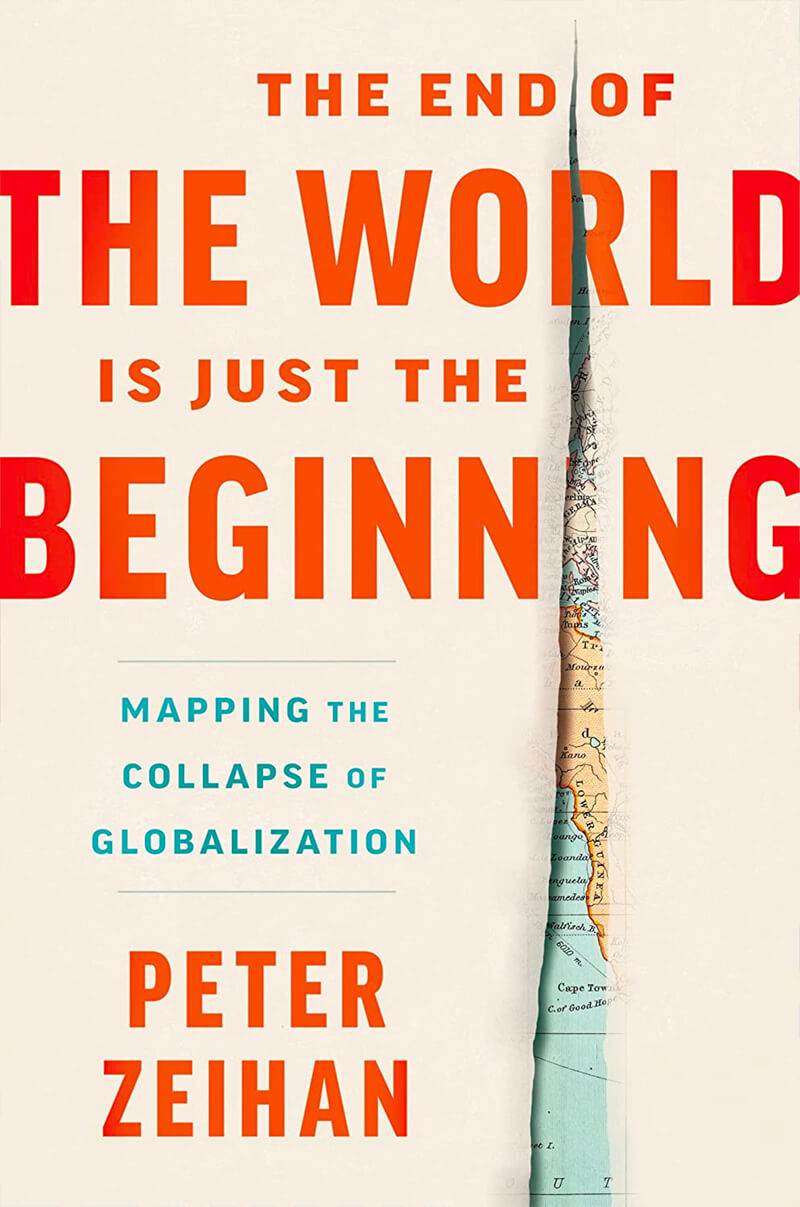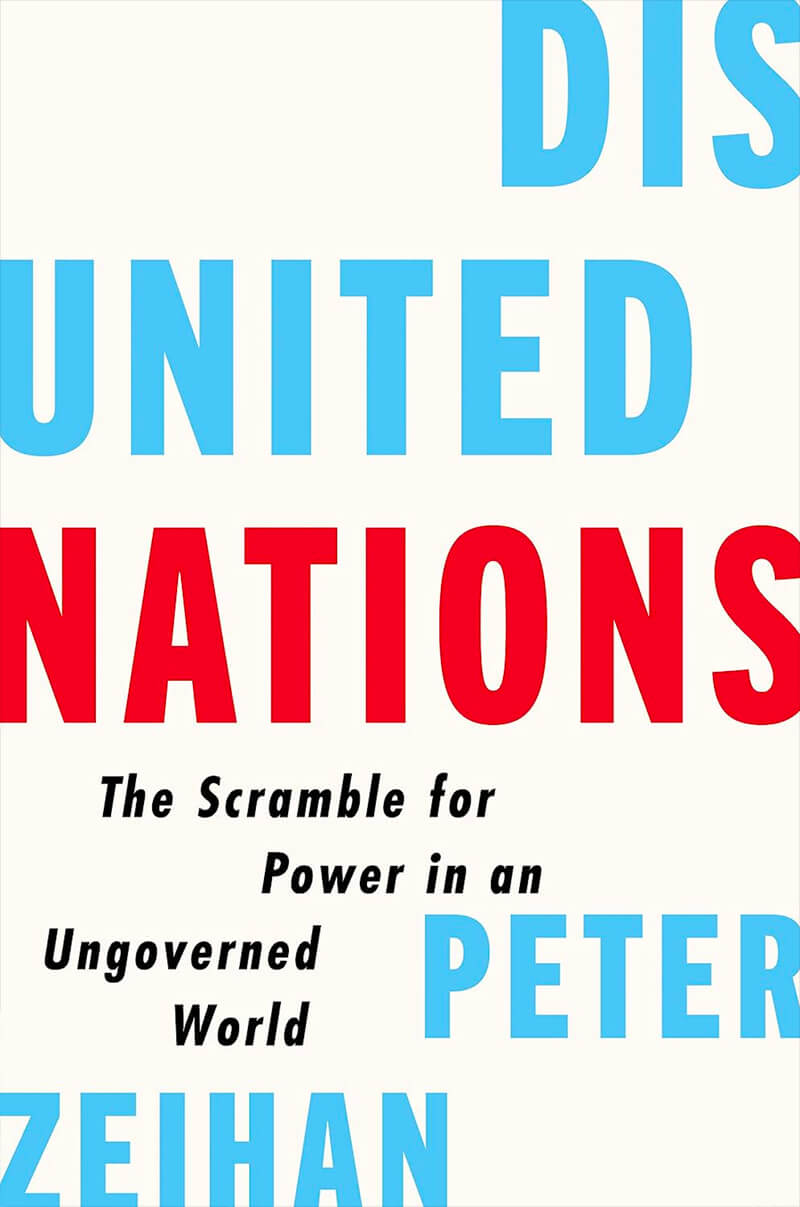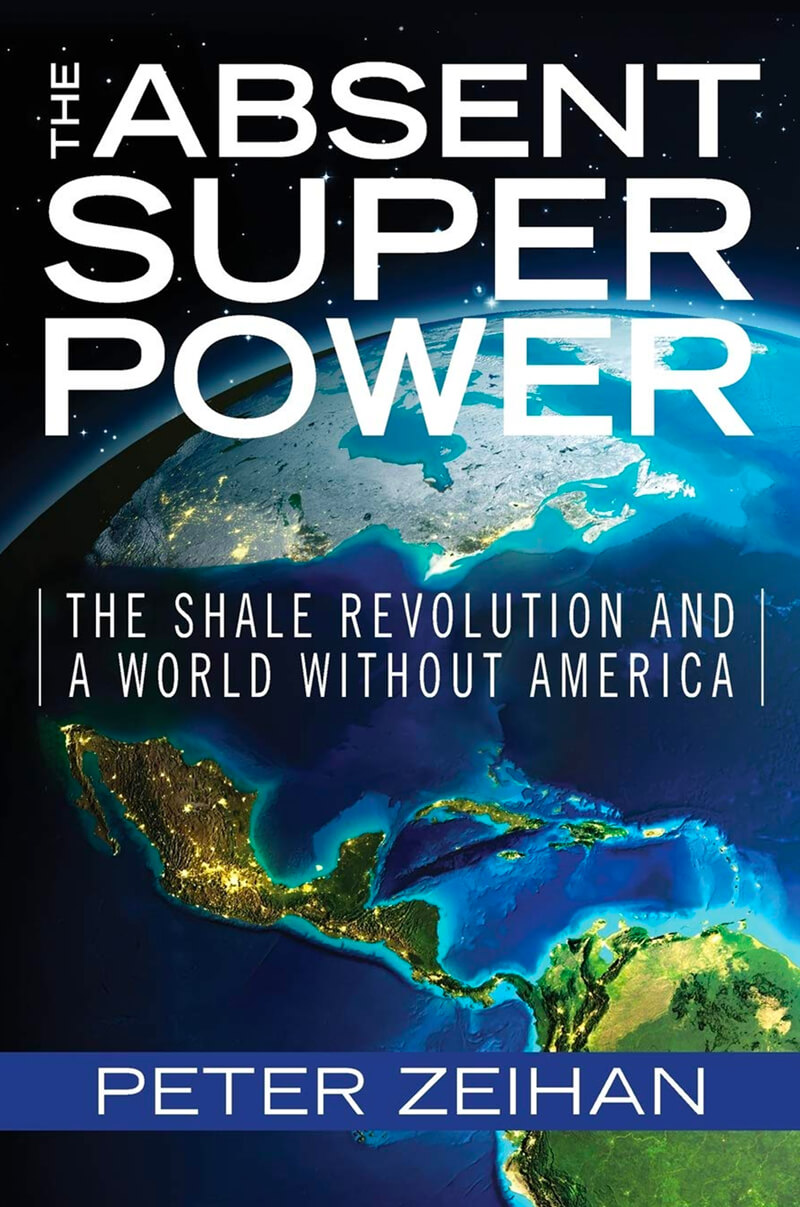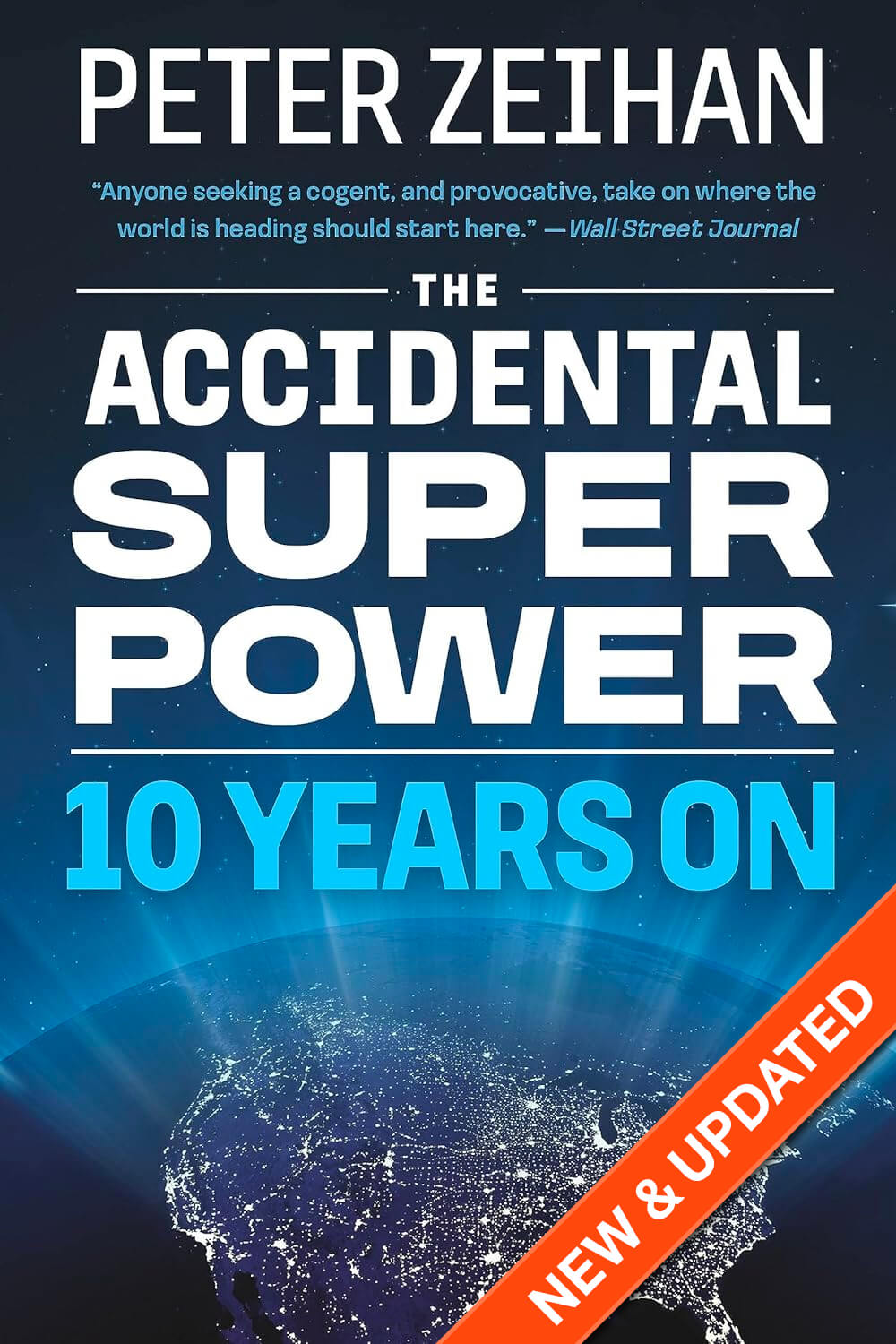
About Acceptable range
Coming 2027
From Peter Zeihan, New York Times bestselling author of The End of the World Is Just the Beginning, comes his first work of fiction: a high-stakes geopolitical thriller that spans continents and tests the limits of power, trust, technology, and national survival.
A striking fusion of real-world insight and pulse-pounding suspense, Acceptable Range is a global-systems thriller — part autopsy, part countdown — propelled by the momentum of a civilization in collapse. It examines the machinery of the modern world and how a system built for perfection forgets how to survive error. Even before someone…gives things a push.
In an age defined by feedback loops and vanishing margins, the question is no longer whether collapse can be stopped — only whether it can be contained within an acceptable range.
Acceptable Range is the first installment of a trilogy, forthcoming from BenBella Books in early 2027.
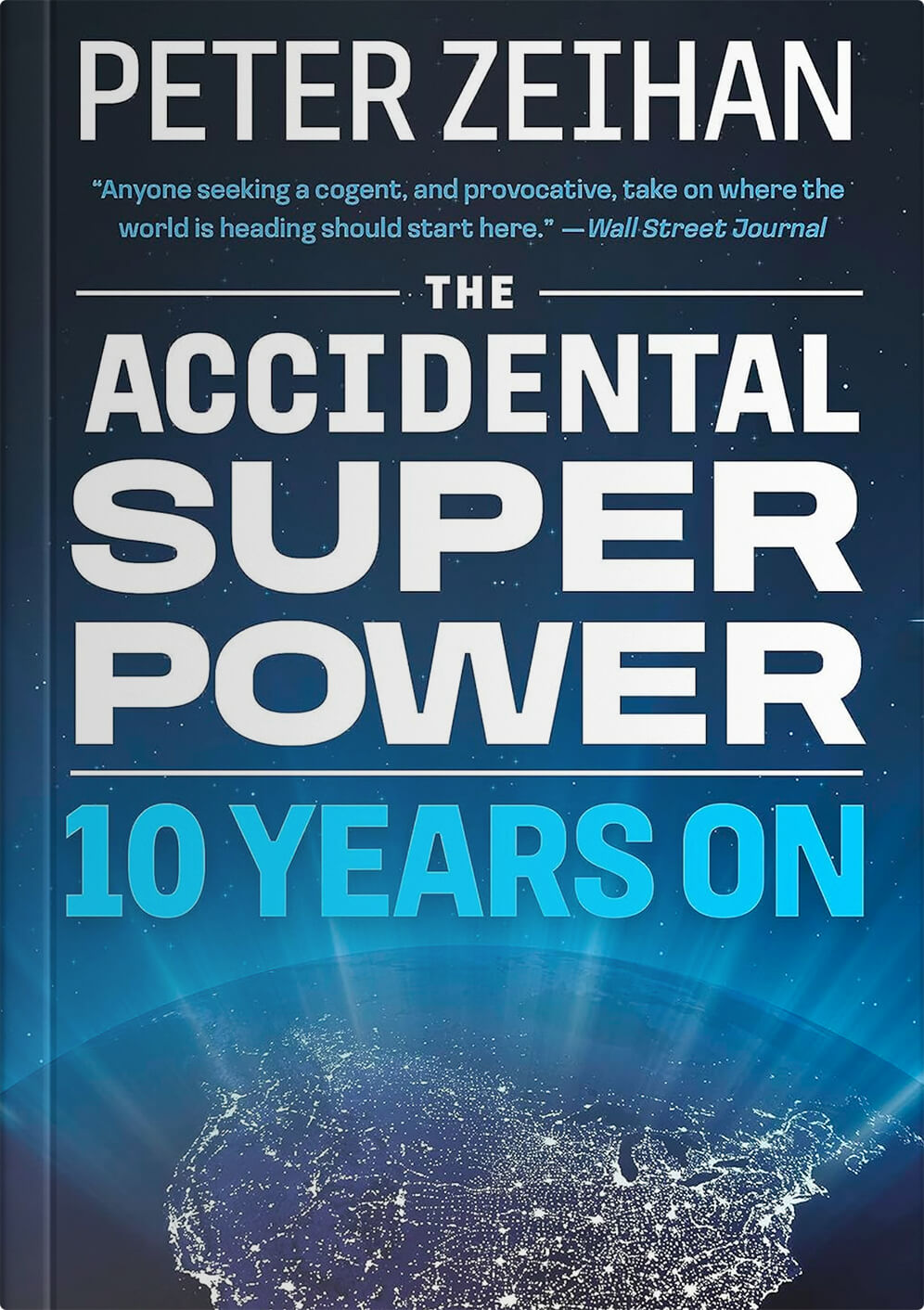
About the accidental superpower: 10 years on
With a new “10 years later” edition comes an eye-opening assessment of American power and deglobalization in the bestselling tradition of The World is Flat and The Next 100 Years.
Near the end of the Second World War, the United States made a bold strategic gambit that rewired the international system. Empires were abolished and replaced by a global arrangement enforced by the U.S. Navy. With all the world’s oceans safe for the first time in history, markets and resources were made available for everyone. Enemies became partners.
We think of this system as normal – it is not. We live in an artificial world on borrowed time.
In The Accidental Superpower, international strategist Peter Zeihan examines how the hard rules of geography are eroding the American commitment to free trade; how much of the planet is aging into a mass retirement that will enervate markets and capital supplies; and how, against all odds, it is the ever-ravenous American economy that – alone among the developed nations – is rapidly approaching energy independence. Combined, these factors are doing nothing less than overturning the global system and ushering in a new (dis)order.
For most, that is a disaster-in-waiting, but not for the Americans. The shale revolution allows Americans to sidestep an increasingly dangerous energy market. Only the United States boasts a youth population large enough to escape the sucking maw of global aging. Most important, geography will matter more than ever in a de-globalizing world, and America’s geography is simply sublime.
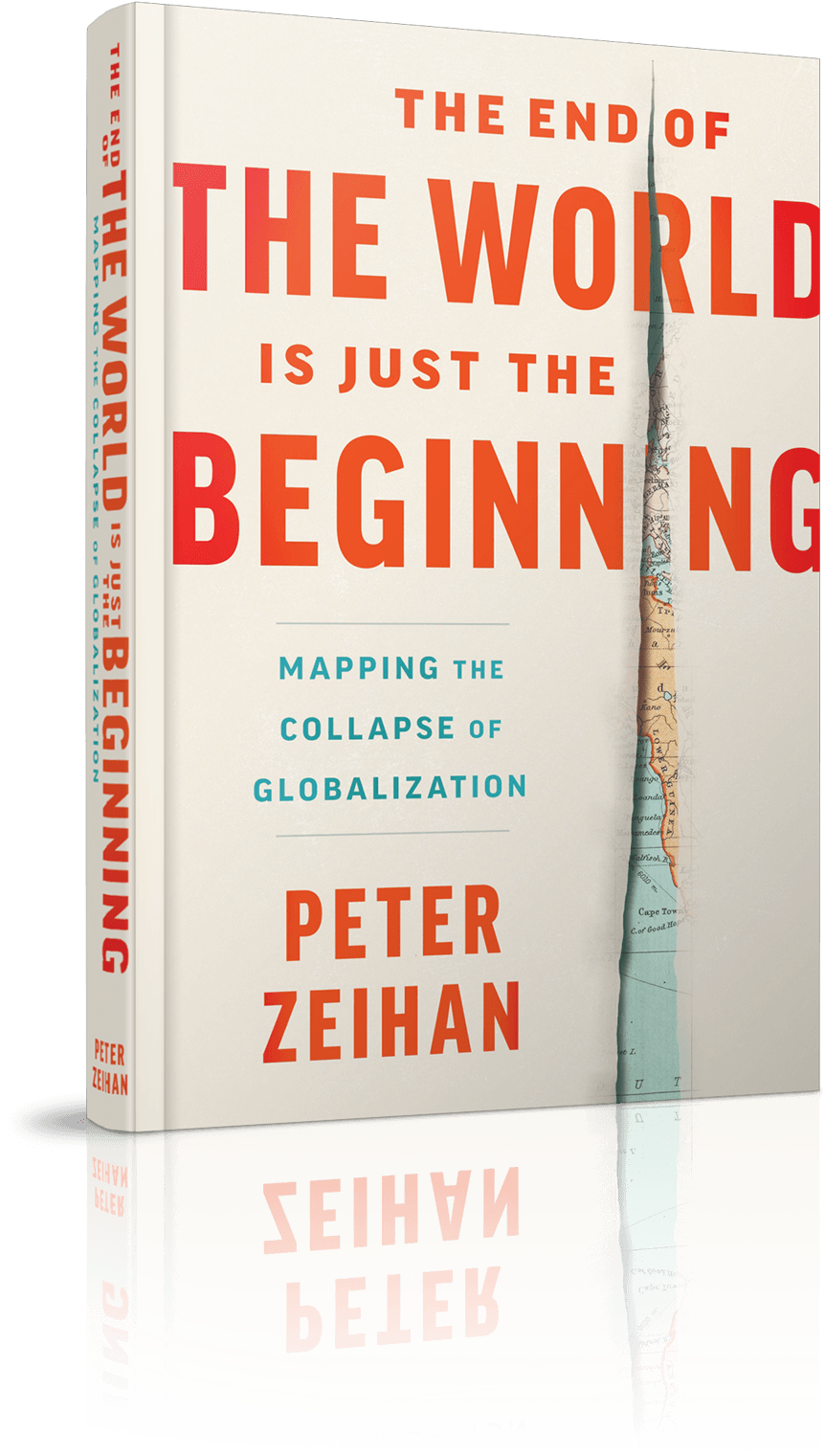

About the End of the world is just the beginning
2019 was the last great year for the world economy.
For generations, everything has been getting faster, better, and cheaper. Finally, we reached the point that almost anything you could ever want could be sent to your home within days – even hours – of when you decided you wanted it.
America made that happen, but now America has lost interest in keeping it going.
Globe-spanning supply chains are only possible with the protection of the U.S. Navy. The American dollar underpins internationalized energy and financial markets. Complex, innovative industries were created to satisfy American consumers. American security policy forced warring nations to lay down their arms. Billions of people have been fed and educated as the American-led trade system spread across the globe.
All of this was artificial. All this was temporary. All this is ending.
In The End of the World is Just the Beginning, author and geopolitical strategist Peter Zeihan maps out the next world: a world where countries or regions will have no choice but to make their own goods, grow their own food, secure their own energy, fight their own battles, and do it all with populations that are both shrinking and aging.
The list of countries that make it all work is smaller than you think. Which means everything about our interconnected world – from how we manufacture products, to how we grow food, to how we keep the lights on, to how we shuttle stuff about, to how we pay for it all – is about to change.
A world ending. A world beginning. Zeihan brings readers along for an illuminating (and a bit terrifying) ride packed with foresight, wit, and his trademark irreverence.
Purchase a copy
PURCHASE AN AUTOGRAPHED COPY

About the End of the world is just the beginning
2019 was the last great year for the world economy.
For generations, everything has been getting faster, better, and cheaper. Finally, we reached the point that almost anything you could ever want could be sent to your home within days – even hours – of when you decided you wanted it.
America made that happen, but now America has lost interest in keeping it going.
Globe-spanning supply chains are only possible with the protection of the U.S. Navy. The American dollar underpins internationalized energy and financial markets. Complex, innovative industries were created to satisfy American consumers. American security policy forced warring nations to lay down their arms. Billions of people have been fed and educated as the American-led trade system spread across the globe.
All of this was artificial. All this was temporary. All this is ending.
In The End of the World is Just the Beginning, author and geopolitical strategist Peter Zeihan maps out the next world: a world where countries or regions will have no choice but to make their own goods, grow their own food, secure their own energy, fight their own battles, and do it all with populations that are both shrinking and aging.
The list of countries that make it all work is smaller than you think. Which means everything about our interconnected world – from how we manufacture products, to how we grow food, to how we keep the lights on, to how we shuttle stuff about, to how we pay for it all – is about to change.
A world ending. A world beginning. Zeihan brings readers along for an illuminating (and a bit terrifying) ride packed with foresight, wit, and his trademark irreverence.
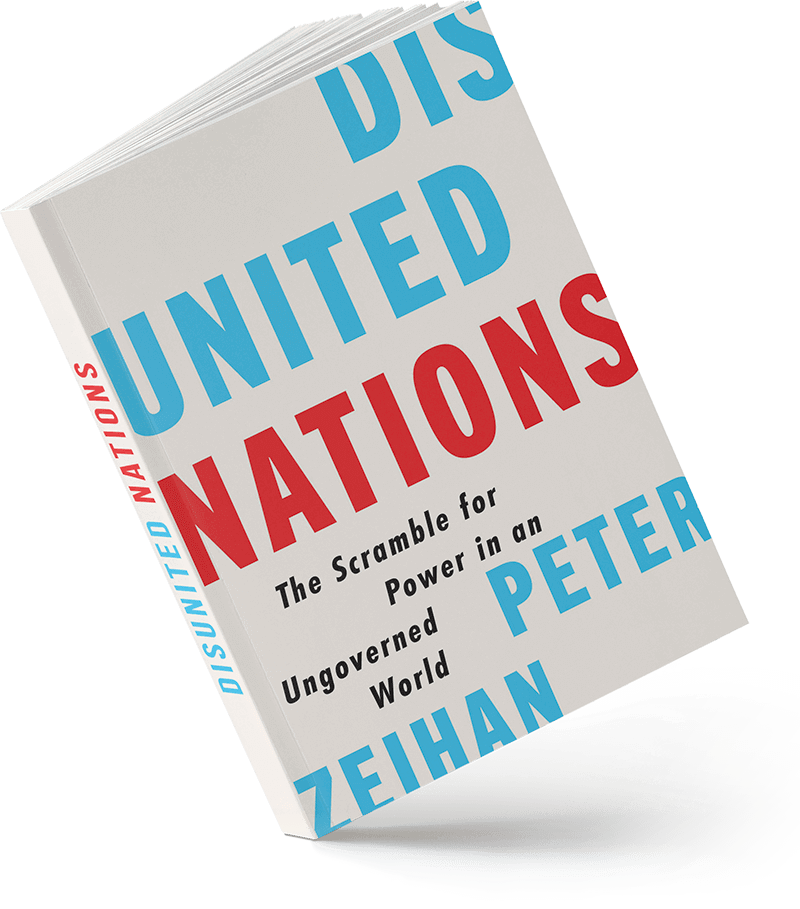
About Disunited NAtions
The world is entering its greatest period of change in nearly a century. America’s allies depend on her commitments for their economic and physical security, and they hope the Trump administration’s positions are an aberration. This hope is misplaced.
The world has gotten so used to the “normal” of an American-dominated Order that we all have forgotten the historical norm: several smaller, competing powers and economic systems throughout Europe and Asia. The period of American hyper-involvement in global affairs is ending. The impacts on global energy and agricultural markets, finance and technology will be transformative, but the heirs to the dying Order are not who you think. Russia, India, China and Brazil will not be the superpowers and wunderkind of the future. Rather, names familiar and new will be taking charge of the emerging global Disorder.
Germany will decline as the most powerful country in Europe, with France taking its place. Every country should prepare for the collapse of China, not the rise of North Korea. We are already seeing, as he predicts, a shift in outlook on the Middle East: it is no longer Iran that is the region’s most dangerous threat, but Saudi Arabia.
Smart, gripping, and essential reading, Disunited Nations is a sure-to-be-provocative guidebook that analyzes the emerging shifts and resulting problems and issues that will arise in the next two decades. We are entering a period of profound upheaval; no political or corporate leader can ignore Zeihan’s insights or his message if they want to survive and thrive in this uncertain new time.

Purchase a copy
PURCHASE AN AUTOGRAPHED COPY
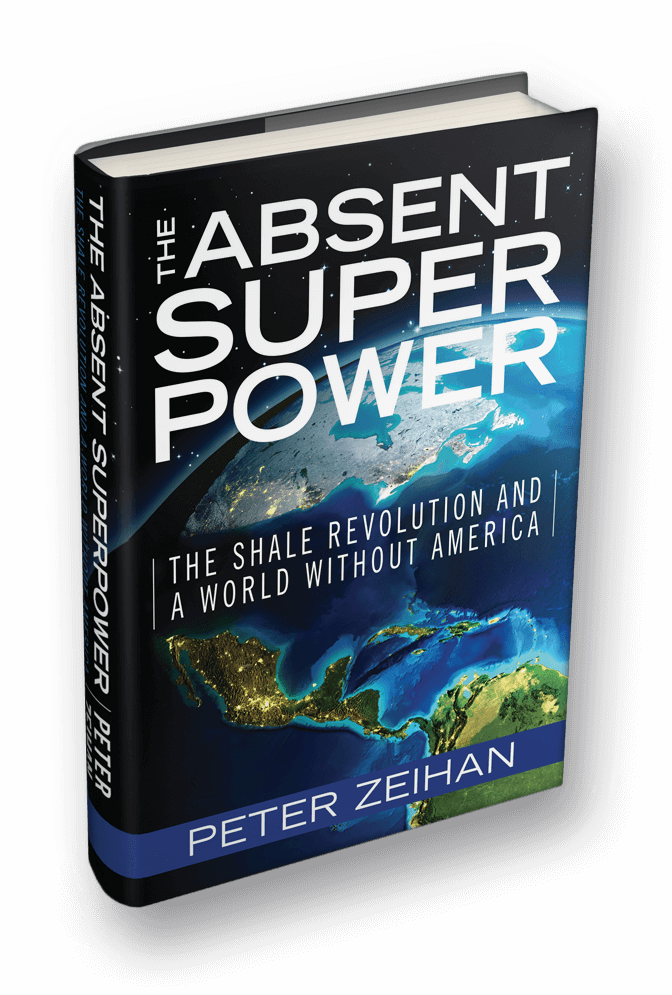
About the Absent Superpower
The world is changing in ways most of us find incomprehensible. Terrorism spills out of the Middle East into Europe. Russia, Iran, Saudi Arabia, China, and Japan vie to see who can be most aggressive. Financial breakdown in Asia and Europe guts growth, challenging hard-won political stability.
Yet, for the Americans, these changes are fantastic. Alone among the world’s powers, only the United States is geographically wealthy, demographically robust, and energy secure. That last piece – American energy security – is rapidly emerging as the most critical piece of the global picture.
The American shale revolution does more than sever the largest of the remaining ties that bind America’s fate to the wider world. It re-industrializes the United States, accelerates the global Order’s breakdown, and triggers a series of wide ranging military conflicts that will shape the next two decades. The common theme? Just as the global economy tips into chaos, just as global energy becomes dangerous, just as the world really needs the Americans to be engaged, the United States will be…absent.
In 2014’s The Accidental Superpower, geopolitical strategist Peter Zeihan made the case that geographic, demographic, and energy trends were unravelling the global system. Zeihan takes the story a step further in The Absent Superpower, mapping out Russian aggression in Europe – starting with an invasion of Ukraine – and a world where an increasingly energy independent United States avoids the pitfalls of Europe and Asia’s dependence on imported oil.
Purchase a copy
PURCHASE AN AUTOGRAPHED COPY
About the Absent Superpower
The world is changing in ways most of us find incomprehensible. Terrorism spills out of the Middle East into Europe. Russia, Iran, Saudi Arabia, China, and Japan vie to see who can be most aggressive. Financial breakdown in Asia and Europe guts growth, challenging hard-won political stability.
Yet, for the Americans, these changes are fantastic. Alone among the world’s powers, only the United States is geographically wealthy, demographically robust, and energy secure. That last piece – American energy security – is rapidly emerging as the most critical piece of the global picture.
The American shale revolution does more than sever the largest of the remaining ties that bind America’s fate to the wider world. It re-industrializes the United States, accelerates the global Order’s breakdown, and triggers a series of wide ranging military conflicts that will shape the next two decades. The common theme? Just as the global economy tips into chaos, just as global energy becomes dangerous, just as the world really needs the Americans to be engaged, the United States will be…absent.
In 2014’s The Accidental Superpower, geopolitical strategist Peter Zeihan made the case that geographic, demographic, and energy trends were unravelling the global system. Zeihan takes the story a step further in The Absent Superpower, mapping out Russian aggression in Europe – starting with an invasion of Ukraine – and a world where an increasingly energy independent United States avoids the pitfalls of Europe and Asia’s dependence on imported oil.


